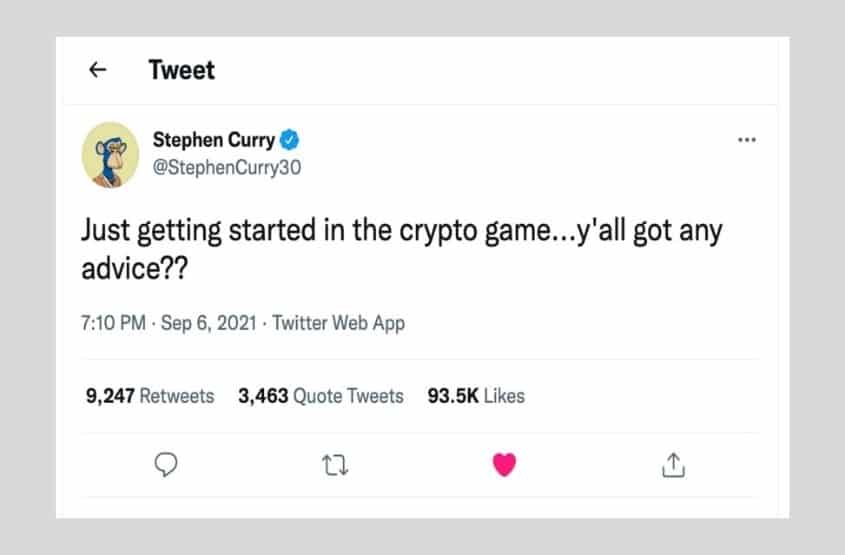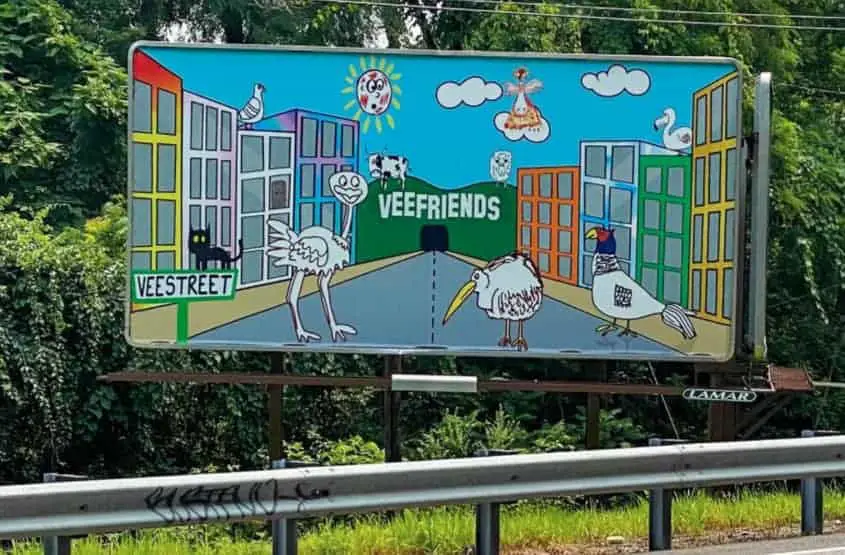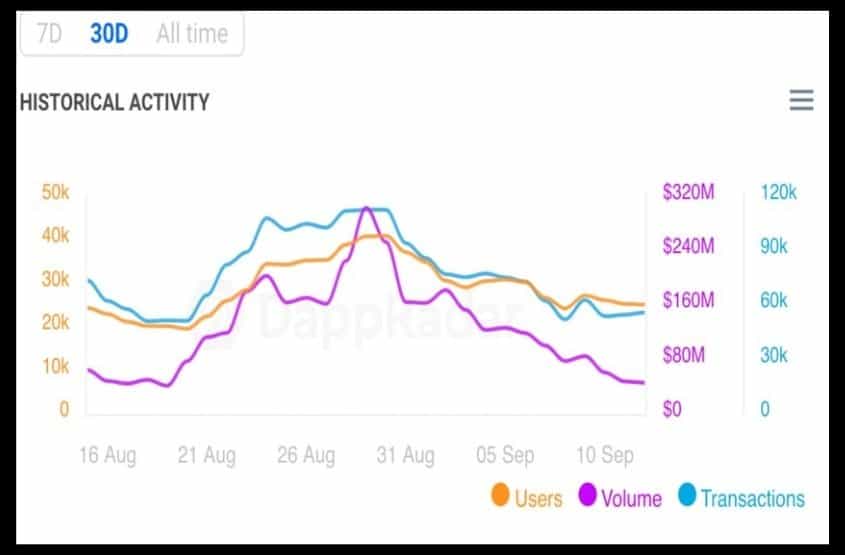Non-fungible tokens have headlined numerous major media outlets’ posts. From CNBC to Forbes, the 3 letter acronym “NFT” is becoming a recognizable household term.
Still, I see people question if NFTs are just a dying fad. Fortunately, I’ve studied NFTs and the trends surrounding this technology and I have come to a conclusion in this article.
NFTs are not a dying fad. In fact, NFTs are just beginning to transform the way humans transact and prove ownership of various assets all while being transparent. Major brands, celebrities, and influencers are taking advantage of the marketing potential and smart contract capabilities of NFTs.
Are NFTs Dead?
Although NFTs are considered somewhat of new technology, there is still plenty of proof pointing to the longevity of these digital goods. Here are 10 reasons that prove NFTs are not dead:
1. NFTs are a sure way to prove ownership and provide transparency
In my subjective opinion, the simple fact that NFTs are stored on the blockchain which proves ownership of any digital and physical asset is a huge sign pointing towards the permanency of NFTs.
Before, it was near impossible to prove the ownership of any asset, as well as the time and date of when that asset was purchased.
Now, thanks to non-fungible tokens you know who bought what, for what price, and the exact day and time of the purchase.
Blockchain technology will help many businesses by allowing a way to carry out more trustworthy transactions while still being entirely transparent with the terms of the contract.
Whether you are buying a car, building your own house, or going to an event, NFTs will play a major role in the advancement of these businesses by creating a frictionless foundation to build upon, for both the business and consumer alike.
2. Celebrities and major influencers are buying and trading NFTs

All aboard the NFT bandwagon! Not only are technologically inclined folks jumping on the chance to buy and trade their own digital assets, but so are celebrities and many big-name influencers.
Gary Vee, Jay-Z, Stephen Curry, Logan Paul, and billionaire cryptopreneur Vignesh Sundaresan aka, MetaKovan, are just a few examples of people who are investing in non-fungible tokens.
Generally, when there is a mass movement or cultural shift celebrities tend to follow and get themselves involved. This is no different when it comes to non-fungible tokens.
Spend one day on Twitter and you are guaranteed to find a celebrity who’s either looking for crypto-related advice or changing their profile pic to a trending NFT avatar.
I believe human behavior is one of the key factors when determining new trends. The next time you see your favorite influencer, sports player, or someone you truly admire interacting with a specific community take a moment to ask yourself why that is.
You’ll likely discover that they are not only interested in the subject matter, but that they really believe in the potential of whatever it is they are talking about.
3. Big-name companies like Visa are investing in NFTs
Not only are individuals investing in NFT technology, but so are some big-name companies such as Visa. With the purchase of a $150,000 CryptoPunk, Visa is not shying away from the fact that crypto is the future of business transactions and customer relations.
“We think NFTs will play an important role in the future of retail, social media, entertainment, and commerce.”
Cuy Sheffield, head of crypto at Visa
Even Visa’s competitors like Paypal, Square, and Mastercard are investing in crypto-related technology, further proving crypto’s technological importance within these companies.
As we continue to see these well-known companies invest in the future of crypto and NFTs, we will also likely experience the heated competition between different brands—racing to be the first to build upon an already steadfast growing technological culture.
4. NFTs are a proven form of marketing for businesses

There is no doubt in my mind that non-fungible tokens are a great way to market for businesses and personal brands alike. NFTs provide additional value for consumers and allow for new experiences and stronger consumer relations.
Consumer relations is described as building and maintaining a trustworthy relationship with consumers. So, of course, brands are going to take advantage of NFTs and the huge potential these digital assets offer.
In fact, Budweiser has teamed up with Gary Vee’s VaynerNFT—a consulting agency that helps intellectual property owners navigate the world of NFTs. Here’s what Richard Oppy, VP of global brands at Budweiser said about NFTs and their future role in brand building.
“NFTs are a huge opportunity for a brand that’s been synonymous with art, music, sports and culture for decades. We see this as a great opportunity to add even more value to our fans.”
Gary has already proven this brand-building concept with his own NFT launch in May 2021 known as VeeFriends.
VeeFriends is an NFT project built around meaningful intellectual property and an extraordinary community. In the first 6 months alone Gary was able to form a discord community of over 150k members. If that isn’t proof enough, I don’t know what is.
Businesses will continue to innovate and incorporate digital assets and the use of smart contracts.
Think about it, anything that reduces friction and encourages trust is a positive thing when it comes to building a reputable brand.
5. Name brands like Funko Pop and Taco Bell are creating their own NFTs
The cool thing about NFTs is that they aren’t only a good option for new businesses, but also for previously established businesses.
Funko Pop collectible vinyl toys and even Taco Bell have both taken advantage of their creative capabilities by creating their own digital collectibles.
In the case of Funko Pop, they released their first digital Funko drop on the Wax blockchain.
This allowed collectors all around the world to simply log in to their WAX wallet and purchase their favorite collectible toys in digital form, some even winning a physical toy to go along with their digital collection.
Taco Bell on the other hand created a collection of digital tacos. Why? Because they could and because people love tacos from Taco Bell.
Owning a Taco Bell NFT allows consumers to own a piece of history and allowed Taco Bell to raise additional funds which they donated to a good cause.
The possibilities that NFTs offer are only limited by the creators’ imagination. Imagine that!
6. OpenSea hit $3B in monthly trading volume

In August of 2021, NFT marketplace OpenSea reached a monthly trading volume of $3 billion. Yes, you read that right. $3B in a single month. For comparison, Nike averages just over $3.6B in sales every month.
The amazing thing about that $3B month is that one brand contributed over $96M in sales—Mutant Ape Yacht Club, a spin-off of the famously known Bored Ape Yacht Club, ultimately leading up to more than $320M of sales in a single day.
Although this number is quite impressive, it shouldn’t come as a surprise. This is just the beginning of something spectacular, something new, and something that many folks find extremely fun.
It’s like trading stocks, just not nearly as boring but perhaps equally risky.
7. CryptoPunks signed a deal with a top Hollywood talent agency
One of the most desirable and well-respected brands in the NFT community, CryptoPunks, has officially signed a deal with Hollywood. Larva Labs, the creator behind Punks, signed a deal with United Talent Agency (UTA) further solidifying their rank in the crypto world.
Expect to see CryptoPunks and other intellectual property owners taking their brands to Hollywood to be reproduced in various forms. Film, video games, music, and other forms of media will surely contain these iconic crypto identities.
You can see CryptoPunks posted on digital displays across New York, as well as other IP projects such as VeeFriends all around the world on billboards and bus benches flexing hard.
I believe this is just the beginning of what’s to come. Stay tuned, and keep an open mind.
8. The first NFT restaurant is set to open in 2023
The VCR Group is launching the very first NFT restaurant concept in the world. Guests will require a membership to dine at the restaurant which can be had in the form of a non-fungible token. There will be three different tokens that allow for three awesome experiences.
Not only do these tokens allow for unlimited access to the cocktail lounge and special culinary experiences, but they can also be sold or transferred to other people around the world.
This is a prime example of how NFTs can be used and collected even after the initial utility has been used up. Imagine owning the first NFT that allows access to a culinary experience of a lifetime. From a collector’s standpoint, I think it’s freaking cool and I know I’m not the only one!
9. NFTs allow for a new play-to-earn way of gaming

Something that is literally a game-changer is the fact that NFTs allow for a new way to play video games and earn money plus in-game assets just for playing.
Envision all the items you have ever acquired in a game, now what if I told you all those items actually hold real-world value? Would you be even more prone to play? I think yes.
I’m very bullish on the idea that non-fungible tokens will transform the gaming industry as we know it. The best gamers will now be able to make a full-time income playing their favorite games.
I always thought about how amazing it would be to collect Pokemon, trade them for a profit, and even earn from my hard work being a trainer. I believe this is now very realistic thanks to blockchain technology and NFTs.
Game creators will also greatly benefit from the extra involvement of players and the desire to play their games. If you thought the gaming community was strong now, just wait until more people are making a living from exploring and interacting with these astonishing digital worlds.
I actually talked with the creators of the blockchain-based game Hexarchia about how NFTs are revolutionizing the gaming industry in this article here, check it out.
10. Scammers are targeting the NFT community
Okay, so you may be wondering what scammers have to do with proving that NFTs aren’t dead. Well, in my opinion, it has a lot to do with the fact that non-fungible tokens are here to stay. Scammers are known to go where the money is.
Not only that, but scammers love infiltrating industries that are considered popular and have a large user base. Think about it. Email, text messages, phone calls—scammers target them all and will continue to target popular platforms such as blockchain-based media.
Being a scammer is a full-time job. It’s an industry in itself. I think this is a promising sign that NFTs aren’t dead and proves that various industries have come to realize these digital assets mean serious business.
With that being said, avoid falling victim to these scammers. Here are my top tips to avoid being scammed when dealing with NFTs.
At the end of the day, it all comes down to what humans are consuming and where our attention is. Right now, a majority of people’s attention is on NFTs and crypto technology in general.
I think it’s safe to assume that if people are spending billions of dollars on the industry, then there may actually be some potential for that industry. With NFTs, businesses are able to market better, build better consumer relations, and do it all on a transparent and trustworthy platform known as the blockchain.
So, do you still think NFTs are dead?
